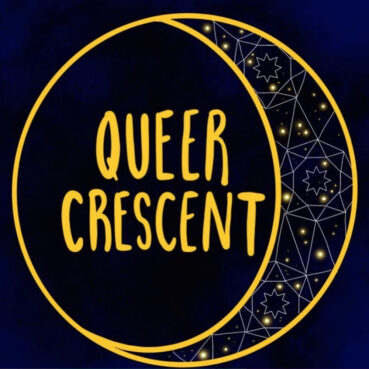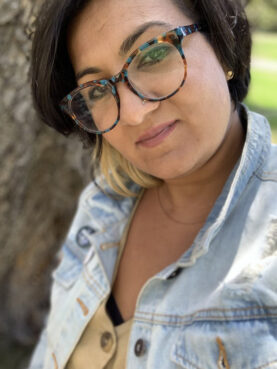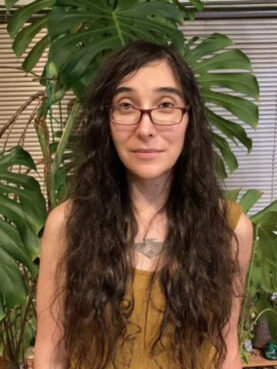New Survey of LGBTQ Muslims
May 13, 2022

(RNS) — In the early months of the pandemic, the LGBTQ Muslim group Queer Crescent launched a mutual aid fund that raised more than $60,000 to distribute to people prioritized as the most in need.
The money helped nearly 400 individuals, including those who were disabled, incarcerated, families of loved ones behind bars, and survivors of domestic violence, according to the group based in Oakland, California.
“We kind of highlighted the most marginal of our LGBTQ Muslim communities,” said Shenaaz Janmohamed, executive director of Queer Crescent. “It let us know that there’s so much more nuance and need and systemic barriers to our community members than we know.”
Now, to further gain an understanding of the experiences of LGBTQ Muslims, Queer Crescent is spearheading and funding what it describes as the largest survey of LGBTQ Muslims in the United States. The goal is to recognize the political needs of LGBTQ Muslims, who according to the group are erased from the broader Muslim narrative.
“How can we self determine what Muslim means to us?” To Janmohamed, this is one question the survey could potentially help LGBTQ Muslims figure out.
The nationwide online survey will be released during Pride Month this June. It will ask participants about their income levels, what kind of access they have to health care and whether they have experienced any kinds of discrimination, among other things.

Queer Crescent logo. Courtesy image
For hard-to-reach populations like LGTBQ Muslims, Amara Ahmed — a member of Queer Crescent and the survey’s lead researcher — said they are hoping to engage enough people who will then encourage others to take the survey. Simply visiting a mosque will not be enough to get the necessary voices from LGBTQ people, Ahmed said. Fliers of the survey will be distributed at community spaces and Pride events. Queer Crescent will be spreading the word with the help of other advocacy groups.
“The basic idea is to jump-start both a sense of the community, and by doing that, make the community more visible,” said Ahmed, a doctoral candidate at the University of Chicago whose research focuses on the experiences of queer Muslims in the U.S.
Ahmed said she’s not aware of any other studies that have focused on LGBTQ Muslims in the U.S. She noted the 2014 Pew Research Center’s Religious Landscape Study that found that 42% of Muslims favored same-sex marriage legalization, compared with just 28% of evangelicals.
This kind of data point, Ahmed said, “can only tell so much of the story.”
“A lot of Muslims in the United States might be OK with gay marriage from a sort of societal, legal perspective,” Ahmed said. “That doesn’t necessarily mean they’re OK with it in their community, or if their kid came out. There’s a much more complicated story to tell.”

Shenaaz Janmohamed. Courtesy photo
These kind of surveys, Janmohamed said, “presume that queerness is not part of the (Muslim) community.”
Janmohamed was raised in a Shiite Muslim household in Sacramento where she was surrounded by a large Sunni Muslim community. “That really shaped so much of my organizing, thinking of who is not present,” Janmohamed said.
She started Queer Crescent in 2017 after the Trump administration’s travel ban blocked people from Muslim-majority countries from entering the U.S. At the time, Janmohamed thought: “Where can I go to register my grief, my sorrow, my fears and my rage?”
“I think that mainstream Muslim organizations, basically straight Muslim organizations, have not always felt like the welcoming space for me to really feel seen and heard,” she said.
Since then, Queer Crescent has held workshops on “Islam & Transformative Justice” as a way to respond to harm, abuse and violence. The organization is also collecting Muslim abortion stories for its Muslim Repro Justice Storytelling project to learn how Muslims have navigated accessing clinics, costs, travel, language and cultural barriers.
Ahmed joined Queer Crescent about three years ago when she was in the process of coming out as trans. She became involved in a support group and is now leading the group’s research efforts.

Amara Ahmed. Courtesy photo
She grew up in the San Francisco Bay Area with a supportive family that was not “super religious.” Ahmed’s mother converted from Catholicism to Islam after marrying Ahmed’s Muslim father. Her parents and others have embraced her trans identity, including a family friend who runs a Muslim K-12 school and whom Ahmed described as a “very religious” person who wears a hijab.
“When my mom told her, the first thing she did was launch into an Islamic justification for why according to the Quran and the Hadith it is OK to be trans,” Ahmed said.
Ahmed is curious about how LGBTQ Muslims create a sense of belonging “even though being LGBTQ and Muslim is often seen as not compatible,” she said.
“Both by LGBTQ people who potentially see Muslims as religiously conservative, and thus opposed to LGBTQ people, and vice versa, with many Muslims seeing being gay or trans as not particularly compatible with the form of the religion that they follow,” Ahmed said.
“How does an everyday sense of belonging come out of that position … when you’re doing something very extraordinary?” she said.
Share
Related Articles
American Civic Life
Why I Stay: LGBTQ People of Faith Find Ways to Belong Where Doctrine Rejects Them
Racial Equity
American Civic Life



